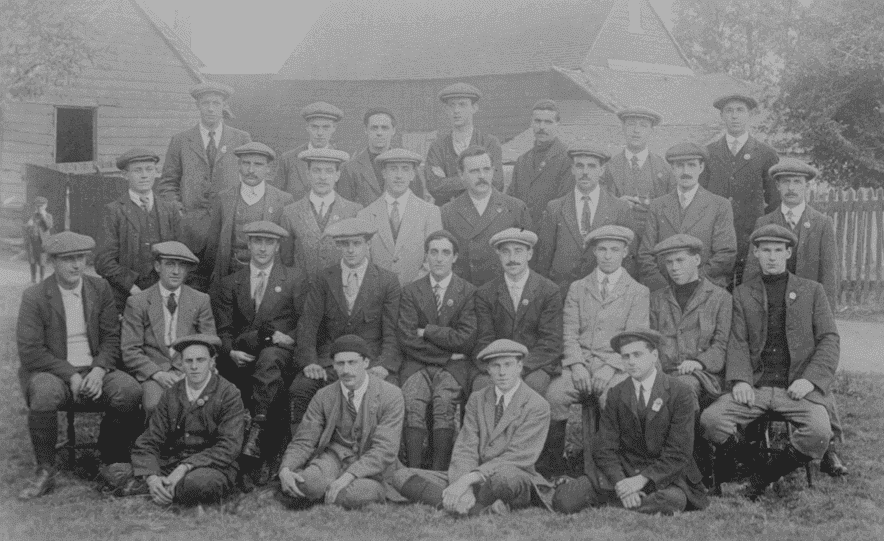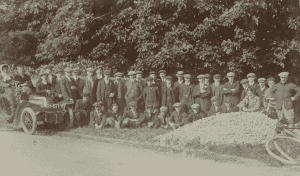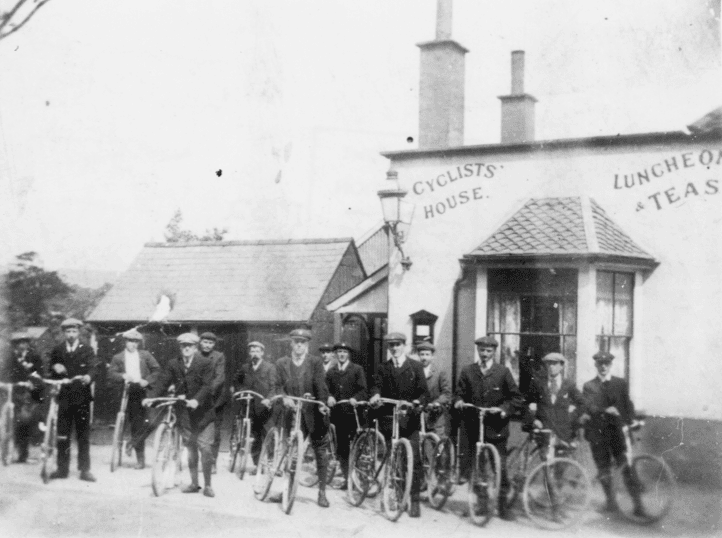As early as the 1890s there was concern at the wear and tear on roads caused by mass cycling. Dorking Urban District Council considered making cyclists contribute to road upkeep. But cyclists were appreciative road users: in 1896 Dorking Cycling Club entertained 30 of the council’s roadmen to supper, giving each a present of tobacco and a pipe in gratitude for the use of the steamroller and the removal of loose stones from roads.
Battles for use of the roads began with the appearance of early cars. In 1893 Dorking Cycling Club sought Lord Ashcombe’s support for a Universal Lights Bill requiring vehicles to carry lights after dark.
The advent of cycle road racing in the 1890s added another element to the conflict. As road racing was of questionable legality the National Cyclists’ Union insisted that clubs race only at velodromes. But rebel racers organized road time-trials.
In the 1920s the Old Paulonians’ Cycling Club introduced summer time trials over 25, 30 and 50 miles to their schedules. Competitors set off at 5am on Sunday mornings from the bandstand in South Street at 1 minute intervals. The early start enabled competitors, (wearing black to evade detection), to avoid not just congestion but also the local police.

© Dorking Museum
The Old Paulonians’ Cycling Club at the Duke’s Head, Beare Green in about 1913. The OPCC introduced stop-watch competitions and timed hill climbs up Box Hill. The club was at the peak of its popularity in the late 1920s and early 1930s.

© Dorking Museum
It was cyclists who first lobbied for improvements to roads from the 1870s, 30 years before motoring organisations arrived on the scene. The motor industry grew from the popularity of wheeled transport by bicycle, but after 1896, when the law requiring low speeds of motorists (who had to be preceded by a man waving a red flag) was repealed, car speeds increased and motorists demanded better surfaces.

Westcott Cycling Club outside the Prince of Wales, which advertises itself as a ‘cyclists’ house’ in 1908.

